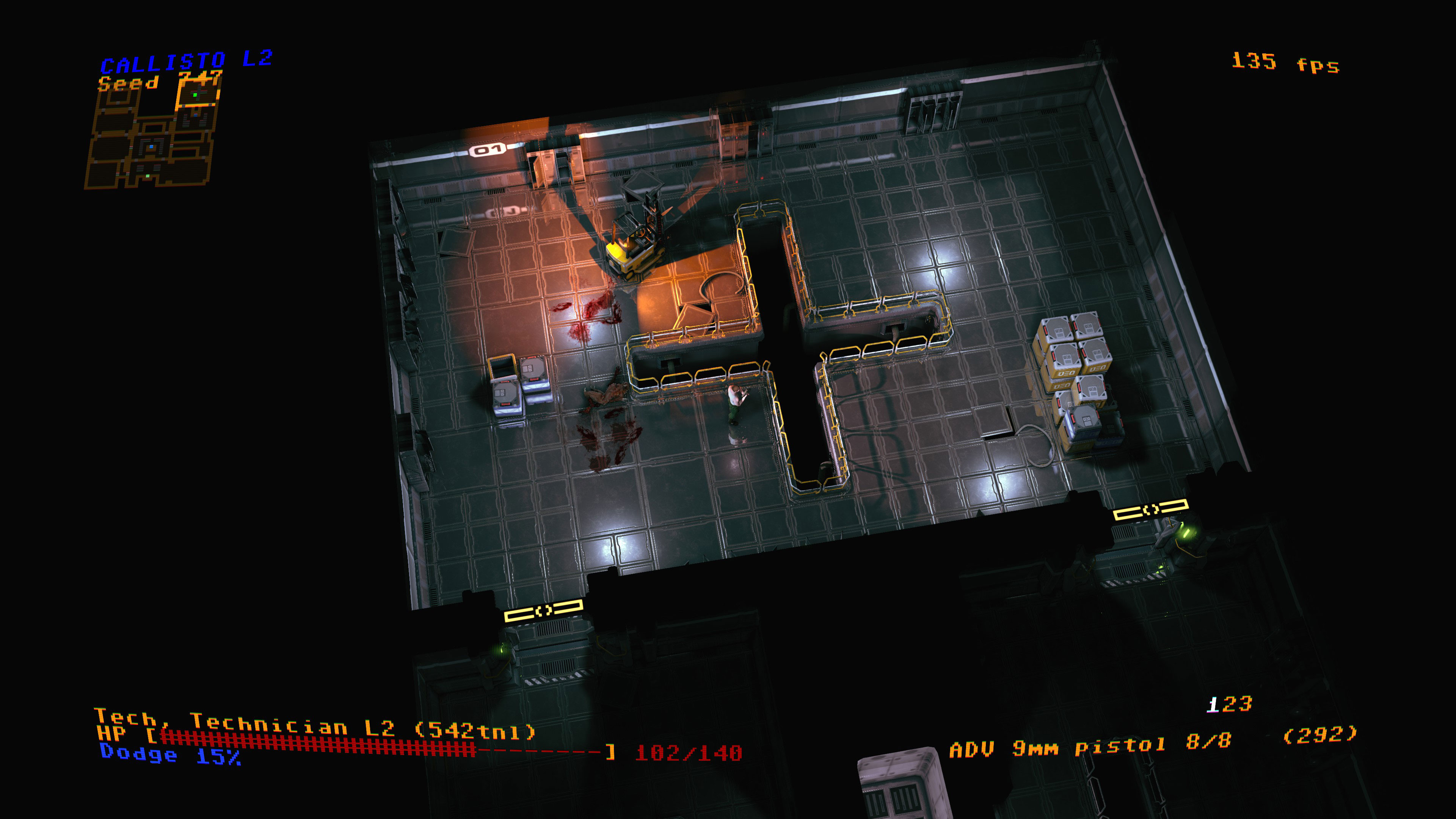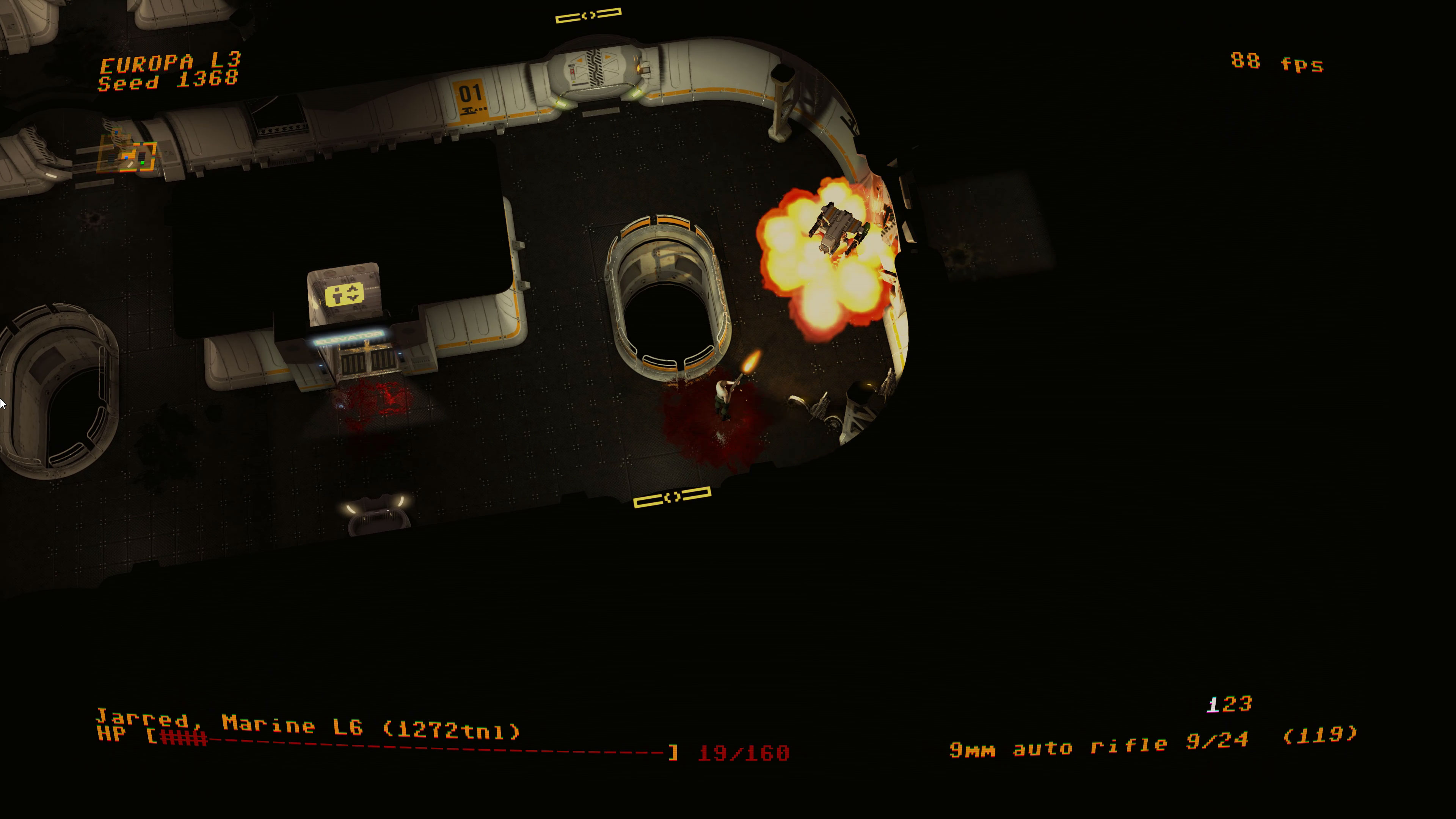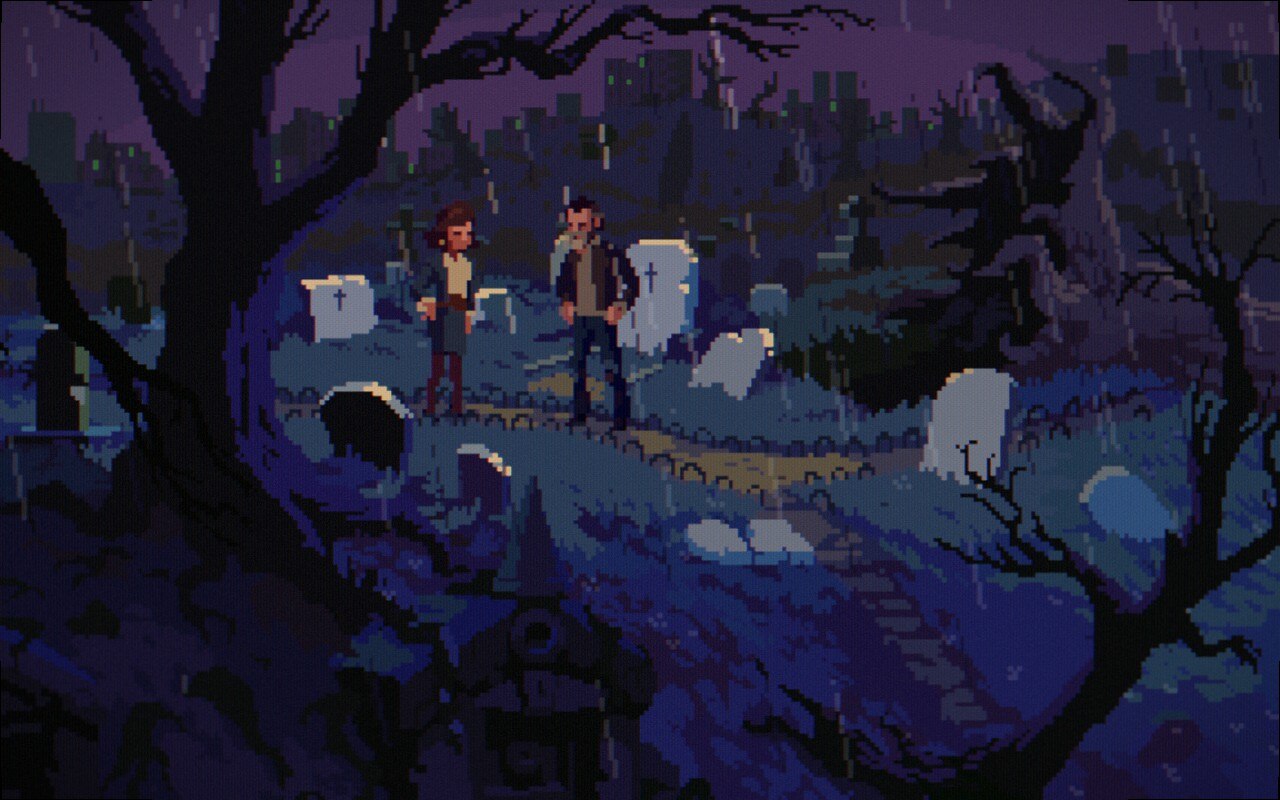Jupiter Hell is a tasty turn-based blend of Doom, roguelikes, and heavy metal
The successor to DoomRL hits Early Access in June.
I'm playing Jupiter Hell, and once again my health is critically low. I've just taken down my second tough security bot in as many minutes and I have no stimpacks or health kits remaining. To make matters worse, I'm low on ammo for my assault rifle.
Things are not looking good, but the next room has a health station. I just might survive this level, I think, but as I pick up the stimpack and heal up, an archreaver and fiend appear. The good news is that they're standing next to some exploding barrels, which I target first. I mop up the remnants and heal up, getting me back to 99 health, but I'm still out of 7.62 ammo. My 9mm auto rifle feels like a pea shooter in comparison...
If the above sounds a lot like Doom, that's because Jupiter Hell is a spiritual successor to Doom, the Roguelike (DoomRL, or DRL now). It was a fun parody project, taking the familiar story of the space marine fighting against the forces of hell and putting it into a turn-based, procedurally generated format played on a grid structure. But where DoomRL is free and opensource, it wasn't authorized by ZeniMax.
The planned sequel was announced on Kickstarter in 2016 and obviously had to undergo a change in name, as well as a few other technicalities. It reached the funding stage, and while any official link with Doom is obviously dead, the core idea is the same. You're still a marine (or technician or scout) fighting the forces of hell, only this time it's around the moons of Jupiter. Oh, and there's a heavy metal soundtrack.

It's a tense but enjoyable take on the standard roguelike, with substantially upgraded top-down 3D graphics compared to many games in the genre. There are reflective floors, shadows and other lighting effects, and more. I'm old, so some of my earliest gaming memories are of the original Rogue, running in glorious ASCII monochrome on my dad's PC in the early 80s. This is a far more polished approach, which I'm currently enjoying at 4K.
The first alpha of Jupiter Hell came out last year, with the beta launching to Kickstarter supporters in October. The beta was made available via Itch.io in February with Steam Early Access planned for June. The latest 0.6 'Universal Soldier' update brings a host of changes, including increased chances to find some of the better weapons. More importantly, you now have three weapon slots, which can be used for any weapon—previously, there were distinct pistol, primary, and heavy weapon slots.

Permadeath is of course part of the game. I've made several runs, encountering a variety of environments, weapons, and enemies. There's also a journal, which currently just says, "There is nothing here ... yet," so obviously there's still work to be done. But even in its current form, Jupiter Hell is a fun and generally quick diversion.
Keep up to date with the most important stories and the best deals, as picked by the PC Gamer team.
There are three difficulty levels, though even on 'easy' I've died plenty of times. (Pro tip: assault rifles don't work so well when enemies are adjacent to you.) You move through maps in one direction, never returning to previous levels, with occasional branches along the way. Do I dig through the Callisto Mines, where demons are more likely, or head to the Spaceport and its heavily armored security bots? Both are perhaps equally likely to end in death, and replayability is high.
There are three classes to change things up, with different skills/perks you can select from each time you gain a level. The marine has health perks for example, so he can get to 160 total health. The scout and technician have perks to carry more stuff and convert ammo types when your inventory is full.
You can start playing now if you buy the game on Itch.io for $40, but the Steam Early Access release will apparently cost less if you want to wait a month. Now if you'll pardon me, I need to search for some 7.62 ammo, because my chaingun has run dry.
Jarred's love of computers dates back to the dark ages when his dad brought home a DOS 2.3 PC and he left his C-64 behind. He eventually built his first custom PC in 1990 with a 286 12MHz, only to discover it was already woefully outdated when Wing Commander was released a few months later. He holds a BS in Computer Science from Brigham Young University and has been working as a tech journalist since 2004, writing for AnandTech, Maximum PC, and PC Gamer. From the first S3 Virge '3D decelerators' to today's GPUs, Jarred keeps up with all the latest graphics trends and is the one to ask about game performance.


